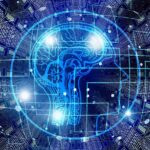Richard A. Faber
Richard Faber has been teaching at Syosset High School for the past 27 years. He obtained his BS in Physical Education and Health Certification from Ithaca College. His Masters and School District Administration Certificate is from Stony Brook University. Richard is also a certified Driver Education Instructor and he has been the Coordinator of Driver and Traffic Safety at Syosset since 1999. He is also the DASA Coordinator for the Syosset Central School District.
Richard teaches Peer Leadership at Syosset and he also teaches wellness classes. He has trained numerous teachers in Peer Mediation and Conflict Resolution and he has presented workshops on Character Education, Conflict Resolution, Student Engagement, to name a few across Long Island. Richard is no stranger to teacher education; he has been teaching in-service and graduate classes for the past 20 years. He looks forward to continue educating teachers in all of the different types of courses he offers.
Check out my course offerings:
Courses |
|---|
 When Students are in Crisis When Students are in CrisisSchools experience a wide variety of crises that have the potential to harm the mental and physical health, learning environment, and safety of students and educators. A school crisis is any traumatic event that seriously disrupts coping and problem-solving abilities of students and school staff. It is typically sudden, unexpected, dramatic and forceful and may even threaten survival. A crisis can cause a drastic and tragic change to the environment. This change is generally overwhelming and uncontrollable as well as unwanted and frightening. It may create a sense of helplessness, hopelessness, and vulnerability combined with a loss of safety.
This course will provide resources, tools, recommendations, and evidence-based practices for incorporating best practices in school mental health into school crisis plans. Different types of crisis will be discussed and strategies will be developed for teachers of all grade levels and subject areas.
ON-LINE (3 Credits – 45 hours) In-Service Credit only $250.00$280.00 Buy here |
 Building Relationships Through SEL Activities Building Relationships Through SEL ActivitiesIn-Service Credit only
Course Description
We define social and emotional learning (SEL) as an integral part of education and human development. SEL is the process through which all young people and adults acquire and apply the knowledge, skills, and attitudes to develop healthy identities, manage emotions and achieve personal and collective goals, feel and show empathy for others, establish and maintain supportive relationships, and make responsible and caring decisions. SEL advances educational equity and excellence through authentic school-family-community partnerships to establish learning environments and experiences that feature trusting and collaborative relationships, rigorous and meaningful curriculum and instruction, and ongoing evaluation. SEL can help address various forms of inequity and empower young people and adults to co-create thriving schools and contribute to safe, healthy, and just communities.
Course Objectives
$250.00$280.00 Buy here |
 Using Al to your Advantage Using Al to your AdvantageWhile AI has been in the education technology space for a while, adoption has been slow. However, during the COVID-19 pandemic, virtual learning forced the industry to shift. Al helps streamline the student education process by offering access to suitable courses, bettering communication with tutors, and giving them more time to focus on other life aspects.
Al enhances the personalization of student learning programs and courses, promotes tutoring by helping students improve their weak spots and sharpen their skills, ensures quick responses between teachers and students, and enhances universal 24/7 learning access. Educators can use AI for task automation, including administrative work, evaluating learning patterns, grading papers, responding to general queries, and more. Here are eight ways Al is used in education. $250.00$280.00 Buy here |
